Confronting the Problem of Statelessness
BU Law International Human Rights Clinic students are documenting the laws and policies that deal with citizenship and nationality in Middle Eastern and North African countries.

Photos by Kayla Ghantous (’21)
Confronting the Problem of Statelessness
BU Law International Human Rights Clinic students are documenting the laws and policies that deal with citizenship and nationality in Middle Eastern and North African countries.
In 2018, students in Boston University School of Law’s International Human Rights Clinic represented a group of Ugandan Asians living in the United Arab Emirates whose access to citizenship had been barred for more than four decades.
Led by Visiting Clinical Instructor Yoana Kuzmova (LAW/GRS’15), the clinic sought individual resettlement solutions and pressed the United Nations for action on exclusionary citizenship laws on behalf of their clients—among or descended from the approximately 50,000 people forced to leave Uganda in 1972 by former military ruler Idi Amin. Ultimately, the team was unsuccessful, and Clinical Professor of Law Susan Akram, the clinic’s director, became convinced that only large-scale advocacy efforts in the Middle East could address the problem of statelessness—a condition experienced by approximately 10 million people around the world who are not considered a national by any state.
“[The Ugandan Asians’] cases are an unsolved problem in the bigger context of unsolved statelessness,” says Akram, who directs the clinic’s work.
Although statelessness is not a new problem, there is growing awareness of the issue because of the long-running Syrian refugee crisis.
“What happens with children born in these host states who are unable to access citizenship?” Akram asks. “We are finding an increase in intergenerational statelessness closely accompanying the new refugee crisis. It’s a double-whammy for the region.”
Today, Akram and clinic students are working with local and international partners on the ground in the Middle East and North Africa to tackle the problem at its root. Working country-by-country, the students are convening stakeholders to lay out the relevant domestic, regional, and international laws in comprehensive reports designed to mobilize people and organizations around the issue.
What happens with children born in these host states who are unable to access citizenship? We are finding an increase in intergenerational statelessness closely accompanying the new refugee crisis. It’s a double-whammy for the region.
Kristina Fried (’20) worked on the clinic’s Lebanon report.
“As valuable as it is to help individuals, a huge issue around statelessness is that there aren’t really domestic laws to prevent it,” she says. “So it really does come down to what the individual countries are willing to do in terms of changing legislation in ways that prevent statelessness from happening in the first place.”
In December 2019, the clinic received a $180,000 grant from the Open Society Foundations to expand their work in the region. In addition to Lebanon, clinic students and their partners have prepared reports so far on Jordan and Iraq; this year students will be compiling information on and speaking to advocates in Egypt.
“It’s definitely been a crash course in how easy it is to be stateless,” says Hope Modugno (’21), who is researching Egyptian laws for that country’s report. “I think most Americans don’t realize that being born in a country and immediately getting citizenship is such a privilege.”
In 2014, the United Nations High Commissioner for Refugees launched its IBelong Campaign to End Statelessness with networks of participating countries around the world. But only Lebanon participates from the Middle East and North Africa region, a void that became obvious when Kuzmova, Akram, and their students tried to assist the Ugandan Asians.
“One of the big gaps in this whole global effort to combat statelessness was the fact that there was no network” in the region, Akram explains. “We came to the conclusion that we had a role to play in helping kickstart a network.”
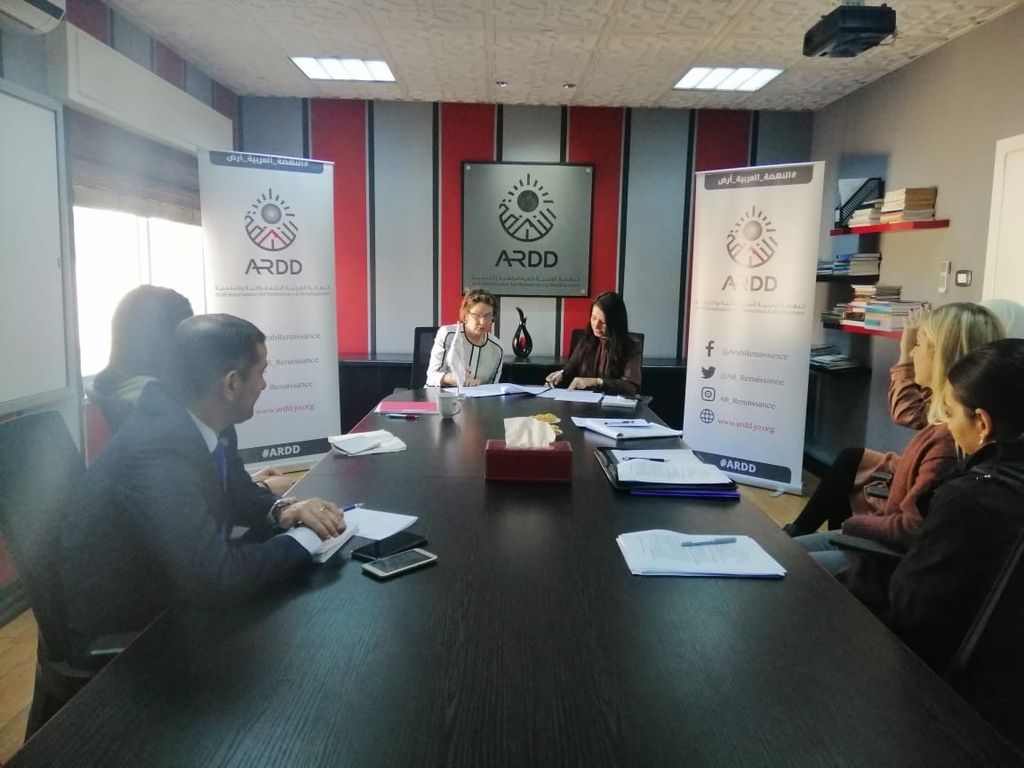
Arab Renaissance for Democracy and Development (ARDD) and Boston University’s International Human Rights Clinic (IHRC) cohosted a workshop in Amman, Jordan, where stakeholders from various NGOs, INGOs, and UN organizations gathered to discuss statelessness.
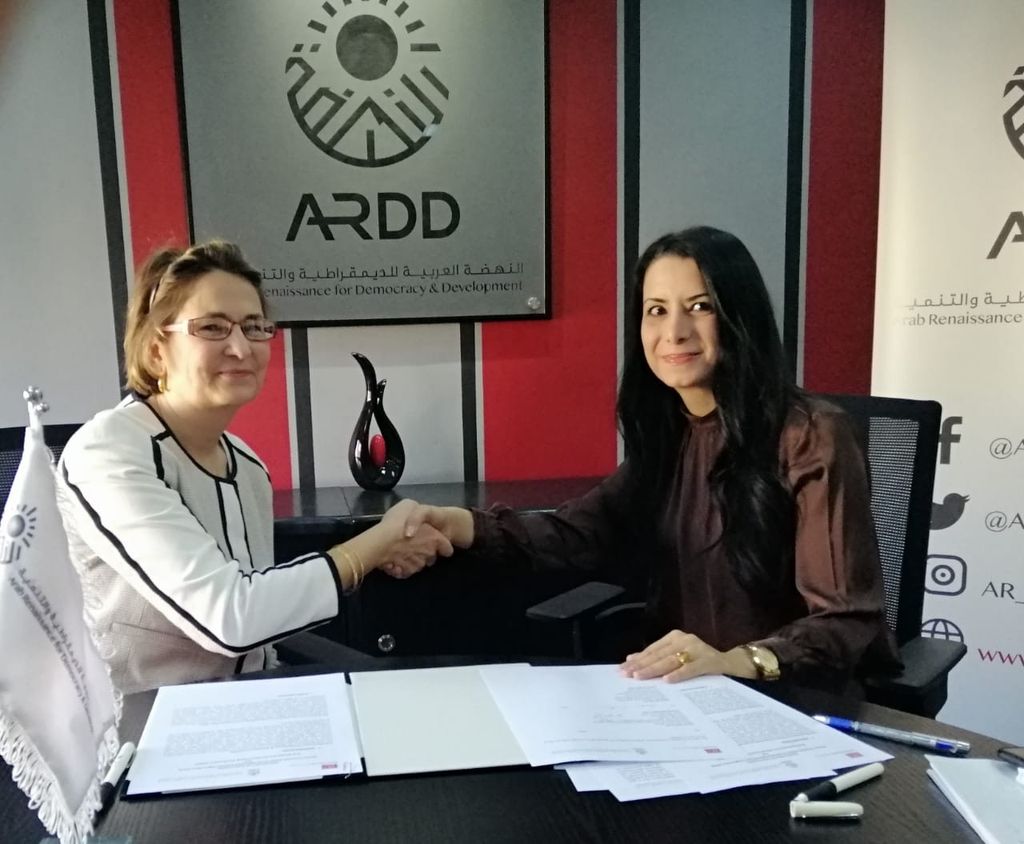
Samar Muhareb, Executive Director of ARDD, and Professor Susan Akram, supervising attorney of the IHRC, sign a partnership agreement at ARDD’s office in Amman.
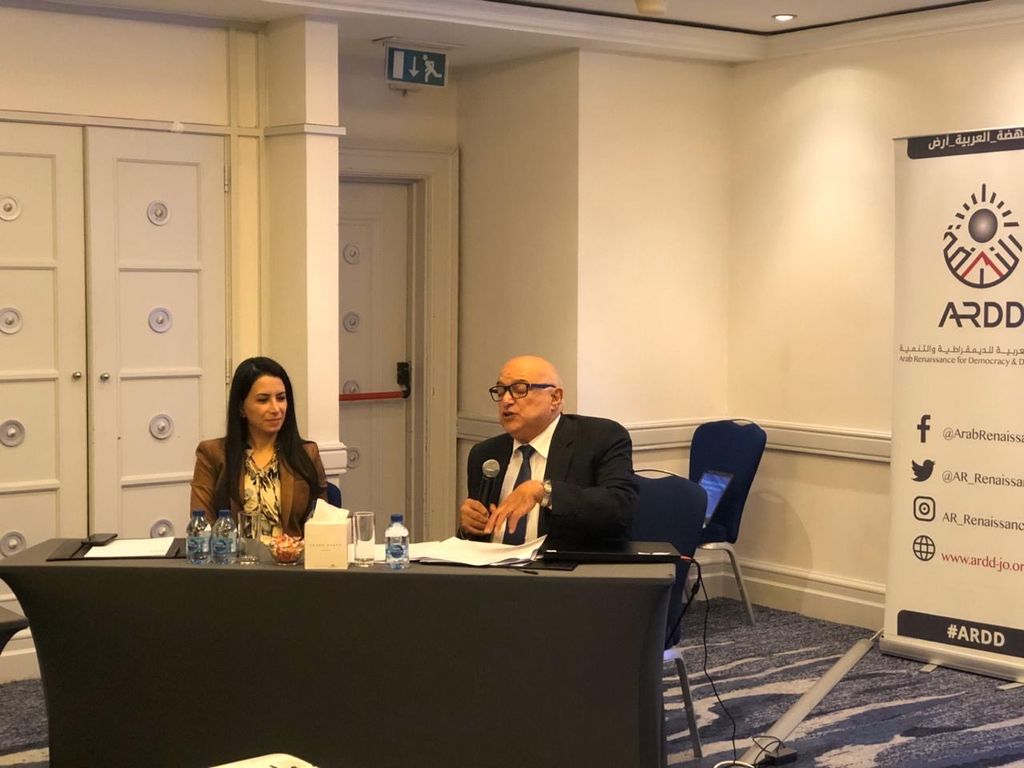
AARD and IHRC’s workshop in Amman to discuss statelessness.


Middle Eastern countries have been reluctant to sign on to international treaties that address statelessness—including the 1954 Convention on the Status of Stateless Persons and the 1961 Convention on the Reduction of Statelessness—because the fate of stateless Palestinians has never been resolved. In part because of that history, Akram believes advocacy on behalf of stateless people in the region should be grounded in regional norms and agreements.
“We need to ground our advocacy on Arab and Islamic consensus,” she says. “That’s where we’re going to get traction.”
Akram emphasizes that she and her students are helping connect advocates who were already engaged in the work on the ground.
“We are facilitating the work that NGOs have already been doing,” she says.
Fried says she went into the clinic thinking that the stateless population in Lebanon would consist mostly of Syrians and Palestinians. But she soon learned that, because of complicated and gender-discriminatory citizenship laws—including a convoluted birth registration process and a patrilineal system in which only fathers can pass citizenship on to their children—Lebanese-born people make up a large portion of the stateless population in Lebanon.
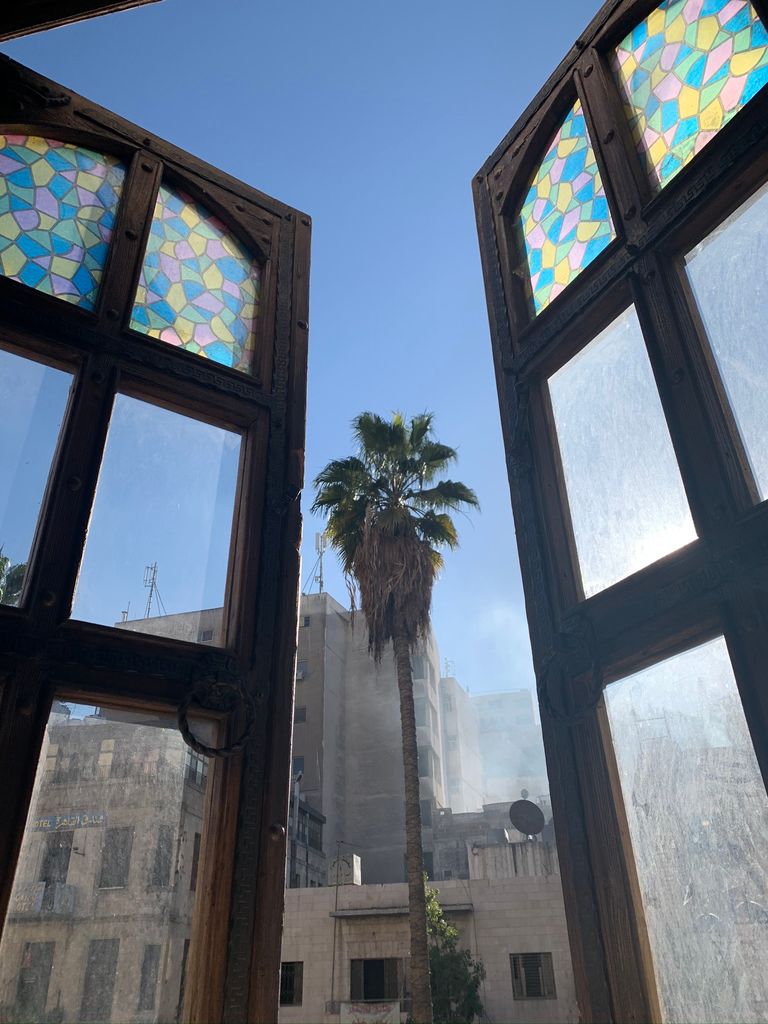
View from cafe in downtown Amman, Jordan.
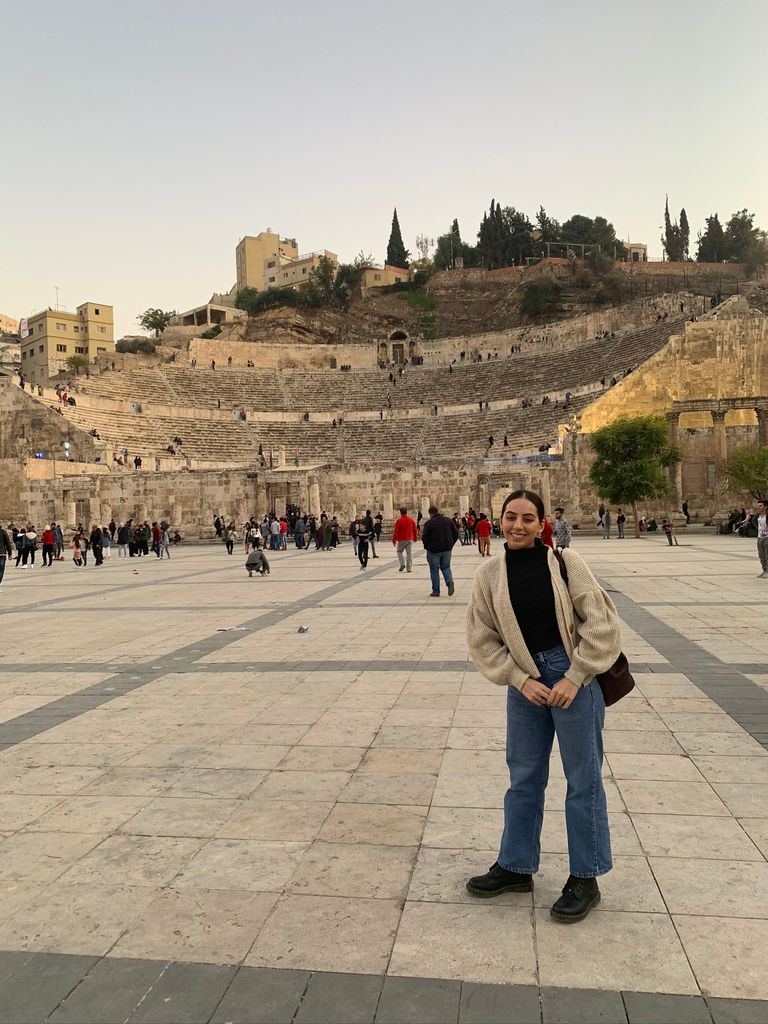
Kayla Ghantous (’21) visiting the Roman Amphitheater.
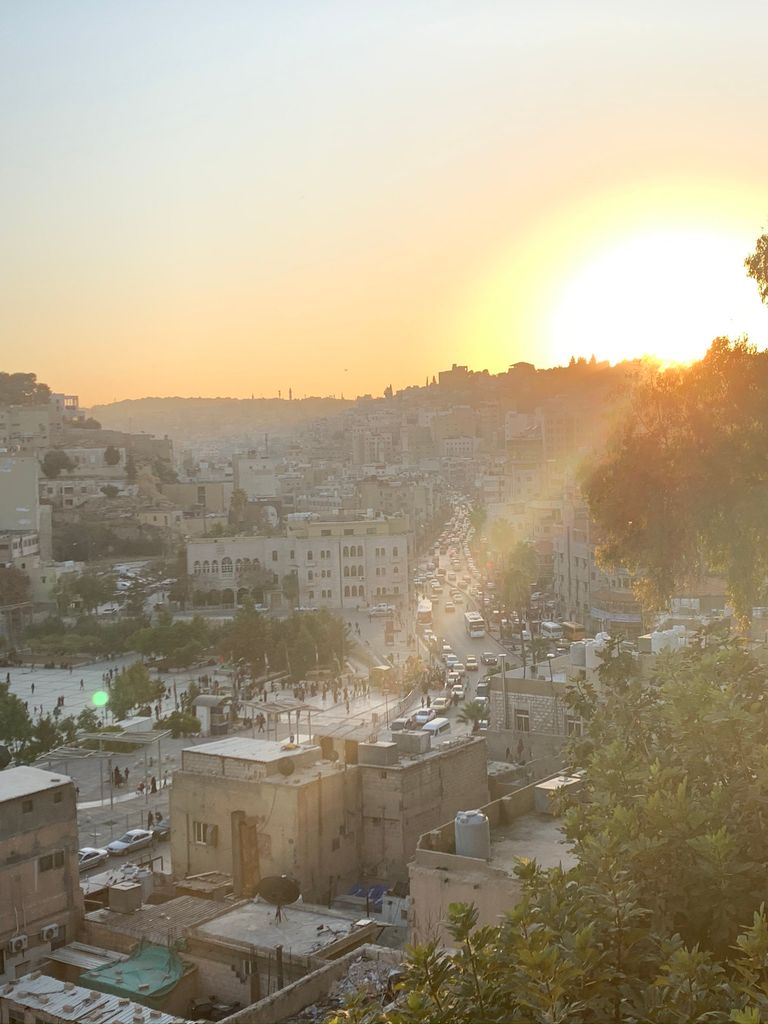
Amman, Jordan.
“We heard that from almost everyone at the table,” she explains. “People who have been Lebanese in every way for generations are left without a nationality.”
Fried, who came to BU Law specifically for the chance to work in the IHRC, says her experience working in Lebanon confirmed her interest in refugee and stateless issues, and she has continued on that path in her current role as a BU Law Public Service Fellow working at the UNHCR in Washington, DC.
Kayla Ghantous (’21), who worked on the Jordan report, was also drawn to BU Law because of the clinic’s reputation for hands-on human rights work. As the daughter of Lebanese immigrants, she explains, she has always seen “the global rather than the national; the world and not the US.” The clinic takes on many projects each year, but Ghantous applied specifically to work on statelessness.
“Having a nationality—that seems like the human right that affects all of our human rights,” she says.
